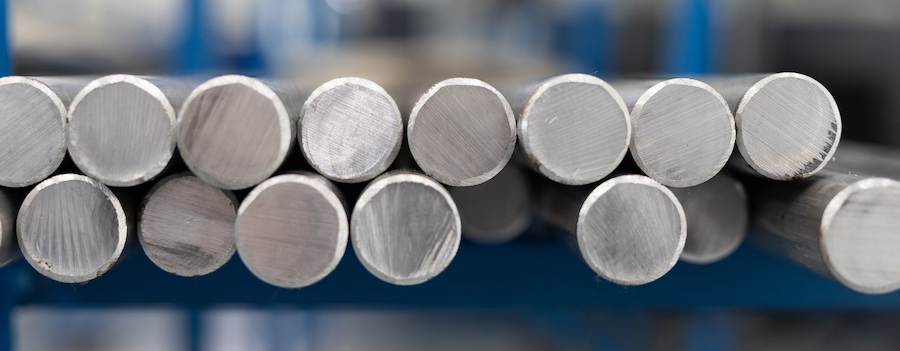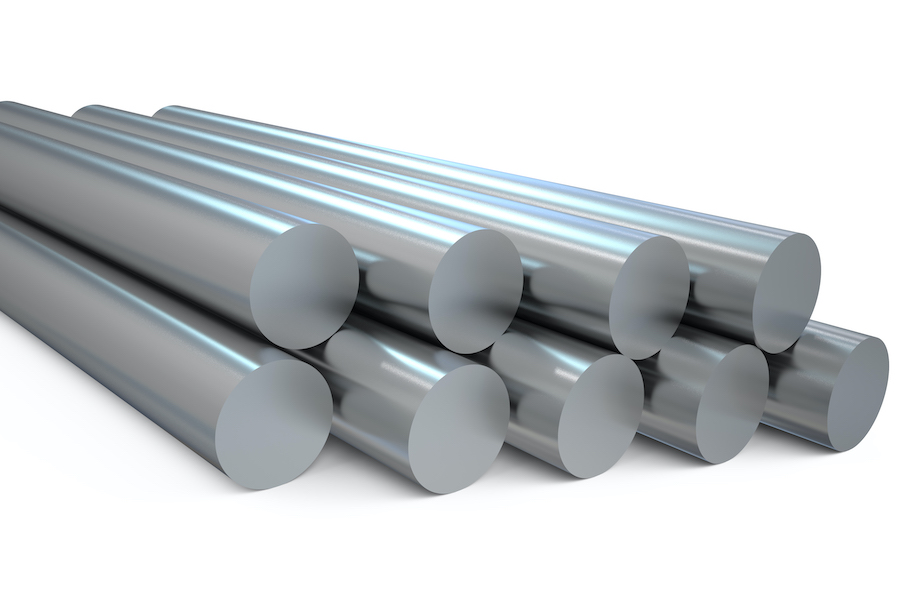P2000 Alloy (1.4452): A Nickel-free High-Nitrogen Stainless Steel
Hempel Special Metals
Stainless steel alloys are highly specialised and customisable materials. Newer blends of these alloys are under research and development consistently. Such research is often driven by material applications with unique properties and characteristics that need to be fulfilled, such as the need to mitigate Nickel poisoning in steel implants or minimise and eradicate stress corrosion cracking. With such specific requirements constantly emerging, will there always be a material able to meet them?
High-nitrogen stainless steels are one of such niche materials with a mix of unique properties. For example, the P2000 alloy, a versatile member of the high-nitrogen stainless steels family, is a special austenitic CrMnMoN-steel alloy that is nickel-free with a nitrogen content of almost 1%. It is one of the metal alloys supplied by Hempel Special Metals and developed by and under the patent of ETE Energietechnik Essen.

What are high-nitrogen stainless steels?
The requirement for a special blend of properties, such as high strength and ductility, high corrosion resistance, zero nickel inclusion, anti-magnetism, and wear resistance, has led to the development of high nitrogen stainless (HNS) steels. HNS steels are characterised by the infusion of nitrogen, a notoriously difficult element to mix in and keep in solution.
High nitride stainless steels can be martensitic or austenitic depending on the heat treatment employed, and extreme care must be taken during heat treatment in order not to lose the dissolved nitrogen directly or in the form of nitride precipitates.
Some of the fundamental property requirements that HNS steels can fulfil include:
- For austenitic HNS steels:
- High yield strength
- Combination of strength and ductility
- High cyclic load
- Enhanced resistance to pitting corrosion and stress corrosion cracking (SCC)
- Nickel-free composition and biocompatibility
- Antimagnetic properties
- High strain hardening capability
- Cleanliness and polishing capacity
- For martensitic HNS steels:
- Combination of strength and ductility
- High wear resistance
- High cyclic load
- Enhanced resistance to pitting corrosion and stress corrosion cracking (SCC)
- Homogeneous distribution of chromium-carbide precipitations
Introducing the P2000 alloy (1.4452)
The P2000 alloy, also known as 1.4452, is an austenitic stainless-steel alloy with a chemical composition of ≤ 0.15% carbon, 12-16% manganese, 16-20% chromium, 0.75–1% nitrogen, 2.5–4.2% molybdenum, and ≤ 0.25% niobium. The rest of the alloy is made up of iron, the base metal.
It is produced by electro-slag melting under high pressures of up to 40 bars. This high pressure is needed for nitrogen to be infused into the melt as its solubility in pure iron is a very meagre 0.04% under normal pressure. Another method of introducing nitrogen into the melt is through the addition of ferroalloys, such as FeMnN and FeCrN, or the addition of ceramic nitrogen compounds, such as silicon nitride (Si3N4).
This alloy is characterised by the complete absence of nickel, a popular alloying element that, besides its good properties, suffers from long-term toxicity to humans, expensiveness, and scarcity.
The P2000 alloy comes in two forms, either solution annealed or cold-worked/precipitation hardened. The cold-worked alloy can achieve a much higher tensile strength, potentially more than double that of the solution annealed version. One crucial point is that such an alloy should not be annealed at high temperatures under a high vacuum as this would risk the loss of nitrogen from its composition.
Nitrogen is a versatile alloying element with economic, environmental, and chemical advantages. In fact, it is an excellent austenite stabiliser and offers a boost to the material’s corrosion resistance. P2000’s pitting resistance equivalent number (PREN) is 42.5, which represents high pitting corrosion resistance.

Properties of the P2000 alloy
The P 2000 alloy shows excellent general corrosion resistance, especially in chlorine-containing media. It is also resistant to pitting and stress corrosion. It has a remarkable combination of strength and ductility even in its cold-worked state, where its strength undergoes a drastic increase.
The absence of nickel makes it particularly suitable for use in and around the human body without any concern for nickel poisoning, rendering it a viable alternative to titanium alloys and 316L steel. Its high fatigue strength enables it to withstand high loads for long cycles.
Some of the properties of the P2000 steel are outlined in the table below.
Table 1. Properties of P2000 alloy (1.4452)
|
|
P2000 (1.4452) |
|
General properties |
|
|
Density (annealed) |
7.7 g/cm3 |
|
Mechanical properties |
|
|
Elongation |
55 – 65% |
|
Reduction of area |
65 – 75% |
|
Tensile strength (Solution Annealed) |
980 – 1160 MPa |
|
Tensile strength (Cold Worked, Precipitation Hardened) |
2000 MPa |
|
Yield strength Rp0.2 (MPa) |
610 – 720 MPa |
|
Modulus of elasticity (Young) |
180 – 220 kN/mm2 |
|
Poisson’s ratio |
0.28 – 0.30 |
|
Thermal properties |
|
|
Coefficient of thermal expansion |
16 x 10-6 1/K |
|
Thermal conductivity at 87oC |
14.9 W/m.K |
|
Electrical properties |
|
|
Specific electric resistance |
0.725 µ.Ω.m |
|
Permeability (at 2000 – 240,000 A/m) |
≤ 1,004 |
Applications of the P2000 alloy
The unique properties of the P 2000 alloy make it very useful in a wide variety of applications. Each application takes advantage of one or more key properties of the material. Examples of typical applications of P2000 and the key property that makes it suitable for the corresponding application are summarised in the table below.
Table 2. Applications of P2000 alloy (1.4452)
|
Industry |
Components |
Key property |
|
Energy |
Generator retaining rings |
Strength, working temperature and SCC resistance |
|
Fastening |
Ultra-high strength screws, nuts and bolts |
Tensile and fatigue strength |
|
Automotive |
Screws, bolts and springs |
Tensile and fatigue strength |
|
Medical engineering |
Surgical implants, coronary stents, joint endoprostheses, dental implants and braces, pacemakers, needles, surgical cutting tools etc. |
Biocompatibility (nickel allergy-safe, permeability, corrosion resistance, reliability) |
|
Watchmaking |
Casings, watch backs, bracelets, etc. |
Polishability, corrosion resistance |
|
Jewellery & Fashion |
Necklaces, rings, bracelets, body piercings, eyewear, etc. |
Biocompatibility (anti-magnetism, corrosion resistance, reliability) |
|
Cutlery and kitchenware |
Knives, spoons, forks, pans etc. |
Corrosion resistance |
How you can find and use the P2000 alloy
Headquartered in Duebendorf, Switzerland, Hempel Special Metals AG is an international group of companies that produces and supplies a wide range of materials, particularly stainless steels, nickel and titanium alloys. The P2000 alloy can be supplied in several dimensions such as drawn, annealed or cold worked wire (Ø 0.5 – 2.0 mm), drawn, annealed or cold worked bars (Ø 9.0 mm), or rolled annealed bars (Ø 50.0 mm).
Visit the Hempel Special Metals supplier page for more information on their materials listed on Matmatch and to get in direct contact with them.
Article by Hempel Special Metals
International Group distributing and processing of High Performing Materials for various industries with HQ in Switzerland

